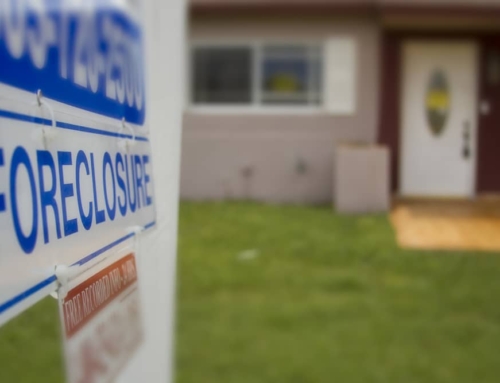About eighteen months ago, a television news magazine detailed a scam that had been running in Florida. By creating fraudulent documents, that were then recorded as if they were originals, the con artist was able to sell someone else’s property and take the money and run.
As the program showed, it was a whole lot easier than robbing a bank, far more lucrative and there was no risk of being shot by the bank security guard.
Unfortunately, for two home buyers in the Chicago metropolitan area, this scam has reappeared and now hundreds of thousands of dollars are gone.
Here’s how it unfolded: The scam artist rented a property. While he was living there, he recorded a fake document conveying the property to himself and then proceeded to record a fraudulent release of the lender’s mortgage lien on the property.
What essentially happened is the scam artist gave the world the illusion that he had bought the property and that it was free of any debt.
Once the documents were in place, he marketed the home and sold it to not just one, but two unsuspecting buyers.
After closing, the buyers discovered each other and the fact that neither of them had title to the home. However, they each had mortgages (those were real) that they used to “buy” the property.
In the end, it’ll be the title companies that will pay up the full amount lost under the title insurance policies held by the home buyers — and the payout will amount to more than $500,000.
Fortunately for each of these buyers, they insisted that the seller purchase title insurance (in Illinois, sellers commonly provide this, although in other states it would be up to the buyer to purchase the title insurance policy).
The scam artist was willing to pay for this coverage knowing that he would be long gone before the scam was detected. Even with title insurance, the defrauded buyers will suffer a huge inconvenience and may even lose money.
So what’s a buyer to do? Here are seven rules each buyer should follow in buying real estate whether with or without a real estate attorney:
-
Hire a home inspector. As a buyer of real estate you should always engage the services of a home inspector to look over the property. The buyer should always attend the home inspection. If there is anything unusual with the home or if something is odd sale of the home, you must discuss this issue further with the attorney representing you or with somebody you trust that has knowledge about real estate. Don’t let the issue slide until the closing.
-
Never deposit earnest money with the seller. Earnest money should always be deposited with a recognized real estate company or a title company or escrow company. Protect your down payment prior to the closing.
-
Always do a preclosing inspection of the home. Even if you have agreed to allow the seller to rent the property back from you, you must inspect the home prior to closing. If the home has burned down, you won’t want to close. If you find other people living in the home, you won’t want to close. An inspection prior to closing is your last chance to make sure things are the way they are supposed to be with your home. If the seller will not allow you to conduct a pre-closing inspection of the home, don’t close. Generally, the seller should have moved out or should be well on the way of moving out when you do your inspection. You need to make sure the house is in the condition it is supposed to be in and as required under the contract. If there is something wrong with the home, discuss it with your attorney or agent. If there is something strange, bring it to the attention of your attorney and agent.
-
Avoid having the seller rent the home from you after the closing. If you have purchased the home, you should not close on the sale unless the seller has moved out of the home. If the seller has not moved out, you must have a great degree of certainty that the seller is in the process of moving out and you are satisfied that he will move out within hours of the closing. If you must allow the seller to stay in the home after closing, make sure that you have a document that identifies how much the seller must pay per day for each day that he retains possession of the home. Above all, you must have a significant sum of money held back from the closing to insure that the seller moves out on time and leaves the home in good condition. In some places, up to two percent of the purchase price is held back from the seller’s money to make sure the seller moves out.
-
Get everything at the closing. You should receive a set of all of the keys to the home at the closing (even if you intend to change the locks later that day), including the garage door openers, and clubhouse or common area keys for community development properties.
-
Always buy title insurance for the full amount of the purchase price. If there is a title defect or a fraud in the sale of the home to you, you will want a reputable title company to back their claim that you became the rightful owner of the home or they will pay you up to the policy limit for any damages you might sustain in case of a title loss.
-
If you are buying a home that is for sale by owner, be extra careful. The home you are buying should have a sign on the front yard indicating that the house is for sale. The sign should be prominently placed and not seem like it is placed there only for you to see. Any seller will want to make sure that everybody sees that his home is for sale. If there is no sign, investigate why no sign was placed. If the development or community does not allow signs on front lawns, was the home prominently advertised with its address in various newspapers? Did it appear that the seller wanted to sell the home to the community as a whole or did he market the home to a specific type of person? If you have questions about the seller or his marketing efforts, you need to make sure that your questions get answered and answered in a way that makes sense.
Some scam artists will rent homes and then market the homes in newspapers targeting certain ethnicities. If the rightful owner does not know his home is being marketed, he can’t object or protect himself. Thus, a real estate broker won’t be used nor will a sign on the property be placed.
The scam needs to be quiet enough for the rightful owner and neighbors not to suspect but prominent enough to catch unsuspecting buyers. Before buying a home for sale by owner, it would be useful to know how long the seller has lived in the property, whether the seller lives there with his family or alone. You should determine whether the seller has ties with the community: whether they have kids in the local school; whether the seller has lived in the home for an extended period of time; and whether the seller works in the community.
Finally, it is always useful to know why the seller is selling the home and where he is going. If the seller has been there a short period of time, is single and is now selling the property, you should bring these facts to the attention of your attorney and you may wish to get more information about the seller.
While following these rules will not guarantee that you won’t be scammed, it will give you a better chance of uncovering problems in your deal. The old saying “buyer beware” still holds true today and a buyer needs to be careful even when assisted by an attorney at closing and a title company.






Leave A Comment